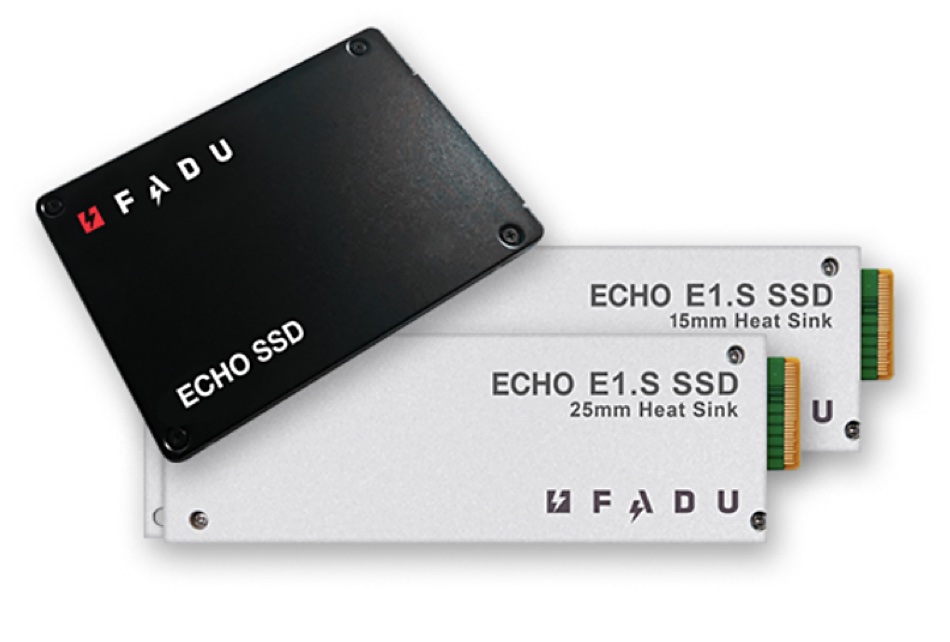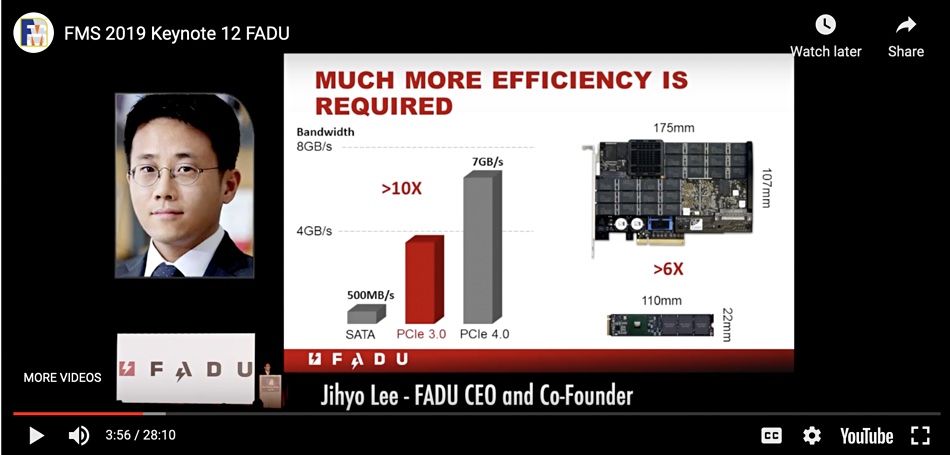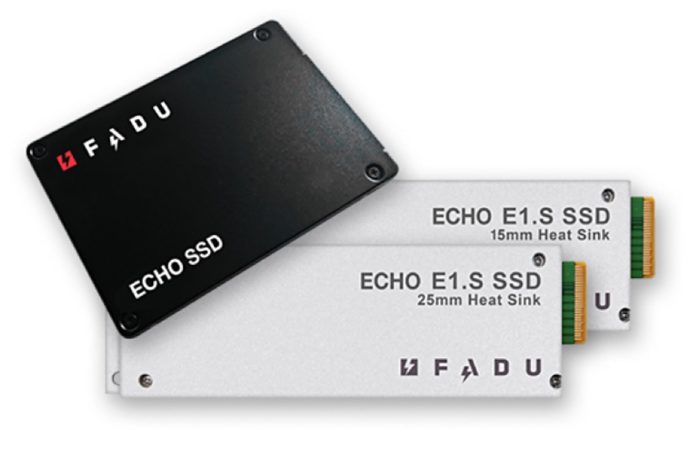FADU has announced its Echo family of EDSFF format PCIe 5 SSDs, doubling PCIe 4 drive speed.
FADU is a fabless semiconductor startup company based in Korea. Its Echo drives will come in E1.S, U.2, E1.L and E3 form factors using FADU’s own FC5161 controller. The Echo drives deliver up to — wait for it — 3.4 million random read IOPS and 735,000 write IOPS. The sequential speeds are similarly impressive: 14.6GB/sec write and 10.4GB/sec read bandwidth. In comparison, Kioxia’s PCIe 4-supporting CD6 family maxes out at 6.2GB/sec sequential read and 4GB/sec sequential write speeds — less than half what Echo offers — and the CD7 can only attain 6.45GB/sec sequential write speed with its two-lane optimisation.
Jihyo Lee, FADU co-founder and CEO, provided an announcement quote: “At every generation, anyone can meet performance — but without an efficient architecture, it’s impossible to meet performance, at low power, with sustained, high QoS. FADU’s unique architecture has proven its ability to meet all three opposing design criteria again as we prepare to support the industry’s migration to PCIe 5.”

FADU is not alone in announcing PCIe 5 product — Kioxia also took the wraps off a series of ruler-format SSDs yesterday.
FADU says the Echo drives consume, on average, less than 5.2W. They support the OCP NVMe Cloud 2.0 Specification, and the startup claims its “revolutionary controller architecture continues to gain qualifications at major hyperscale datacentre vendors.” It’s mentioned in a Gartner quote from Joe Unsworth, a research VP, who says: “PCIe 5 SSDs are forecast to start deployment in late 2022. FADU is well-positioned to support next-generation hyperscale, cloud, enterprise, and edge datacentres and AI applications in that timeframe.”
To learn more about FADU’s approach to SSD design watch this video from the 2019 Flash Memory Summit:

FADU’s announcement has been timed to coincide with the 2021 Open Compute Project Global Summit being held at San Jose from November 9–10, at which FADU is a startup sponsor.








